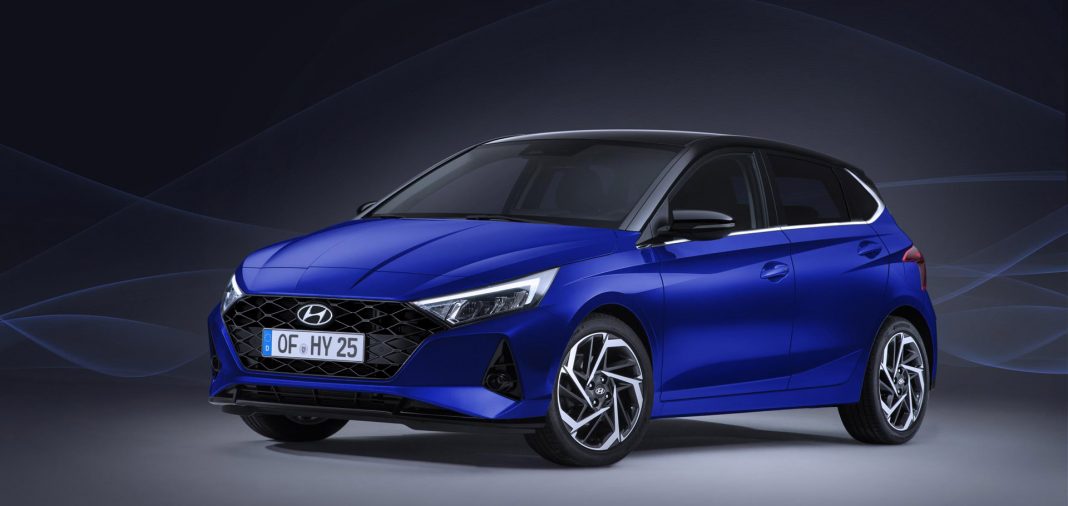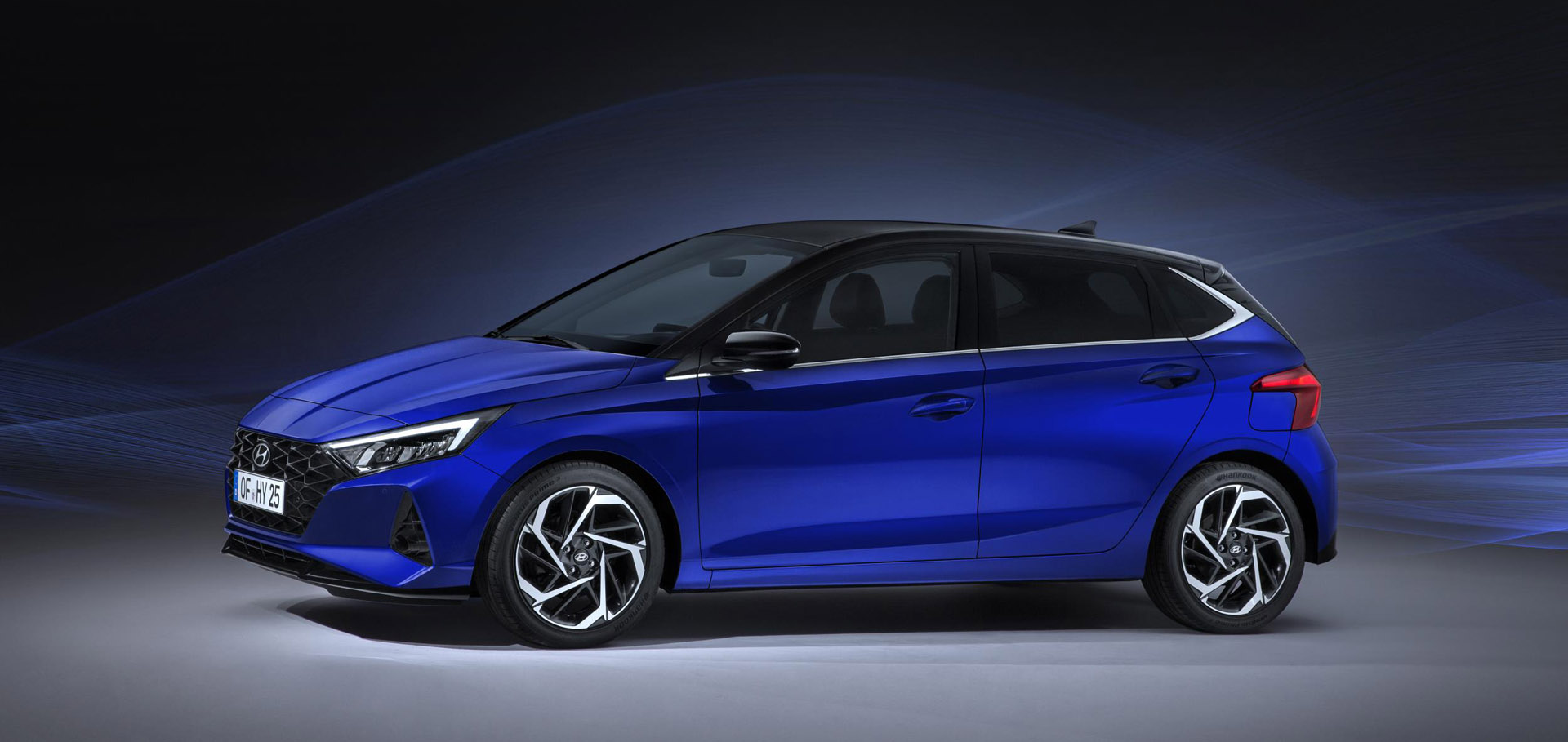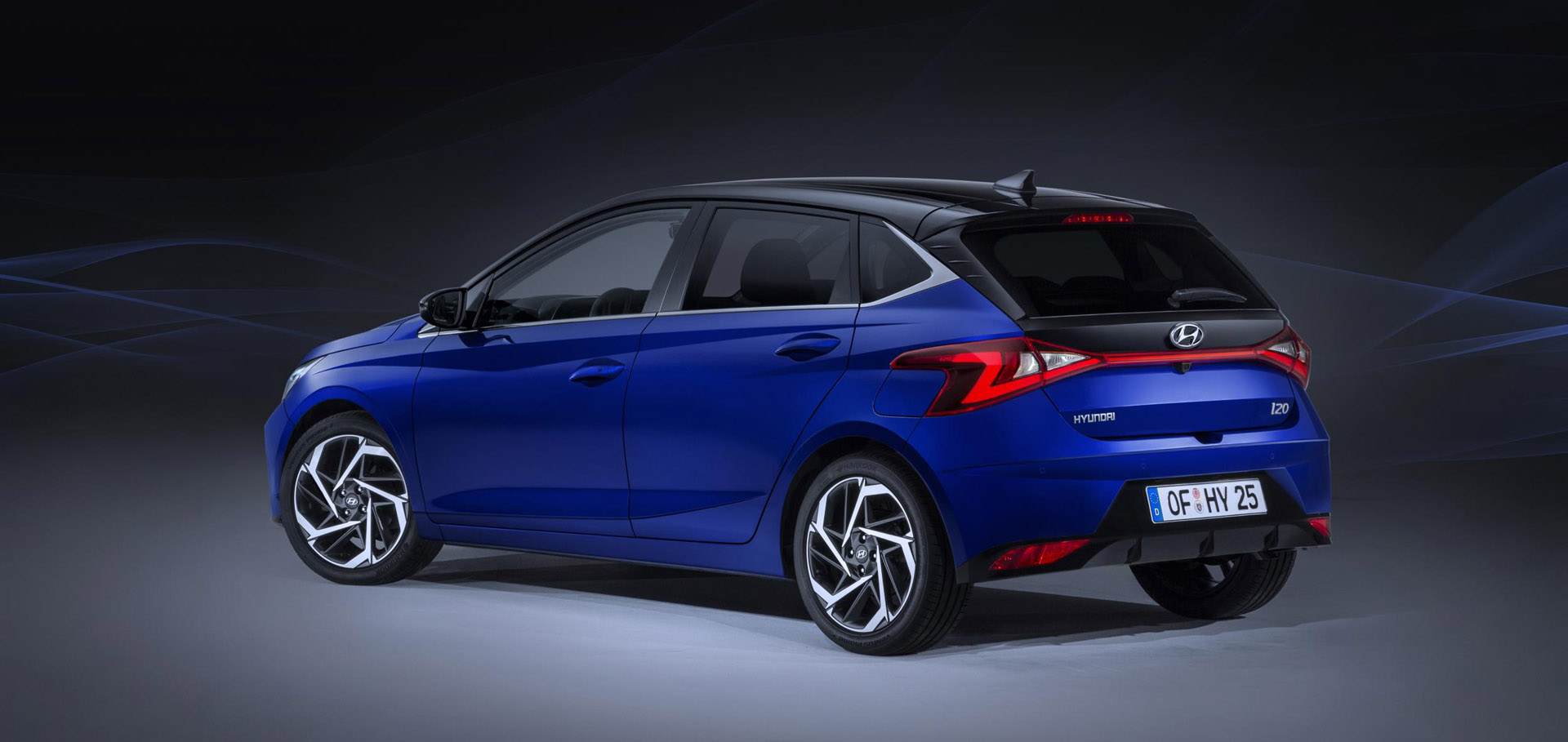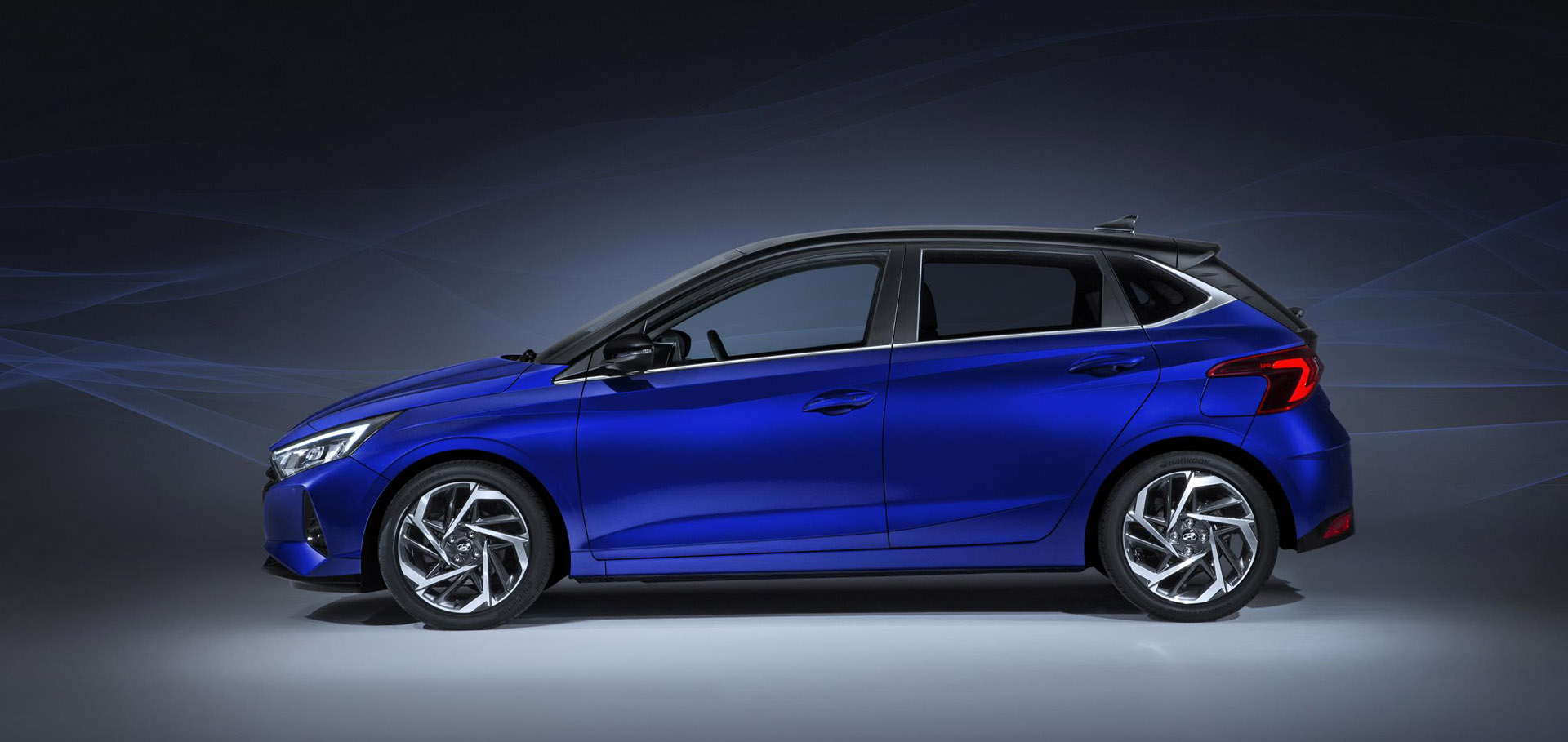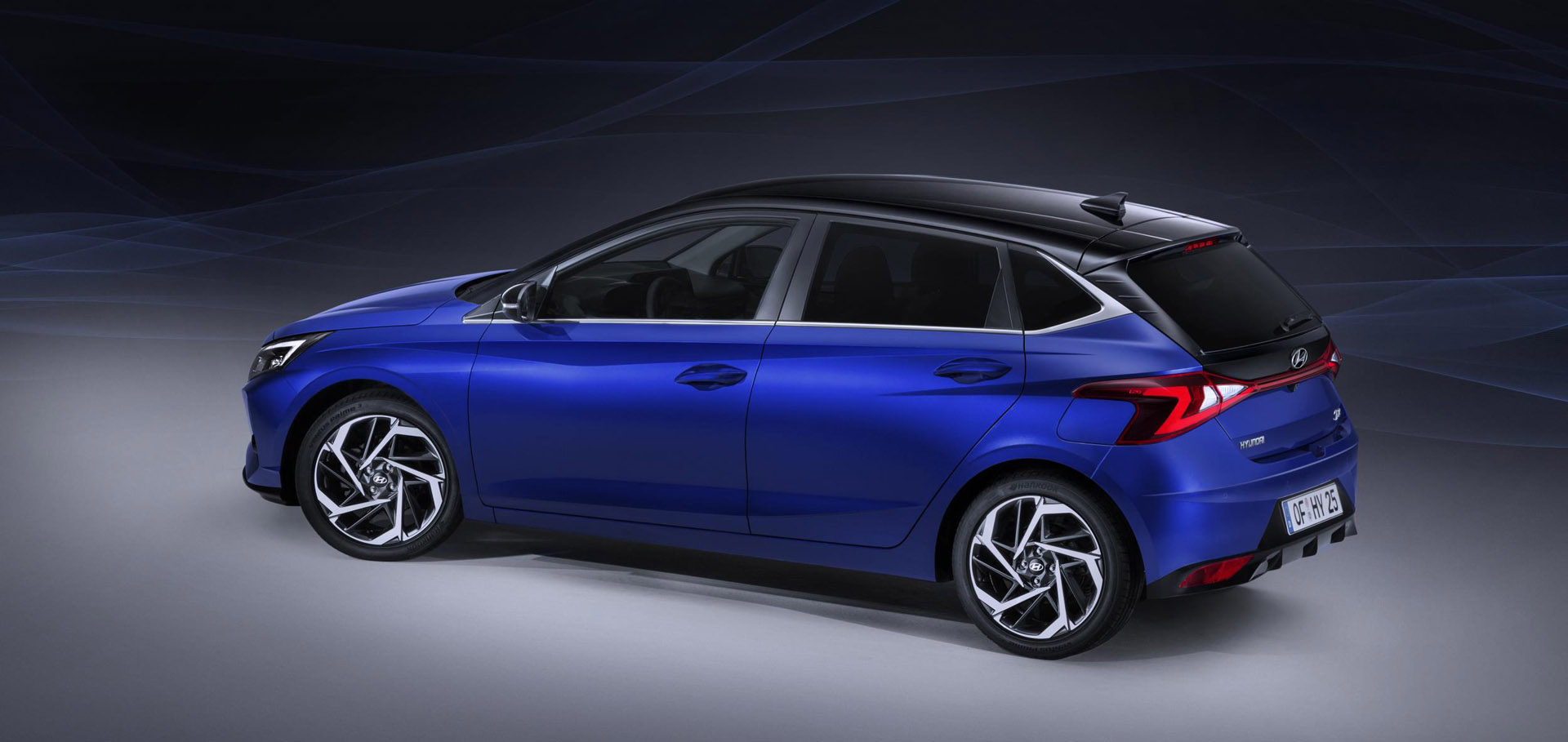Hyundai Motor’s all-new i20 features a revolutionary and ambitious design that follows the company’s new Sensuous Sportiness design language. With best-in-class connectivity features and the most comprehensive safety package in its class, it sets new standards for a B-segment car.
The all-new i20 is the third-generation of Hyundai’s successful model, which first launched in 2008. One of Hyundai’s most successful models, the i20 stands for quality, reliability, and practicality. In addition to these core pillars, the all-new i20 introduces a completely new, dynamic style.
Read next: What is an EV? Everything you need to know about hybrid and electric vehicles
As well as a completely new exterior design, the all-new i20 has received a range of technological enhancements. There are two new 10.25” screens, consisting of a digital cluster and a navigation touchscreen, which are visually combined in the dashboard. Meanwhile, its segment-leading Hyundai SmartSense safety package includes alongside several new features a new generation Forward Collision-Avoidance Assist (FCA) that now offers pedestrian and cyclist detection for even more assurance on the road.
“Thanks to great quality, reliability and practicality, the i20 has continuously been one of the top sales drivers for Hyundai in Europe,” said Andreas-Christoph Hofmann, Vice President Marketing & Product at Hyundai Motor Europe. “The all-new i20 illustrates our ambition by delivering eye-catching design and comprehensive connectivity and safety to the B-segment.”
Hyundai i20: Design
The all-new i20 is the first car in Europe to feature Hyundai’s ‘Sensuous Sportiness’ design language. It is characterised by the harmony between four fundamental elements: proportion, architecture, styling and technology. The purpose of this design direction is to create emotional value and to give Hyundai’s vehicles a distinctive new look.
Compared to its predecessor, the all-new i20’s proportions have been made more dynamic, while at the same time ensuring it is practical for navigating around busy urban areas. Its visual stance is improved by its lowered roof (-24mm), wider body (+30mm) and increased length (+5mm), while the wheelbase has also been increased by +10mm. This is further augmented by newly-designed 17” alloy wheels.
Read next: Automobili Pininfarina unveils an electric hypercar with 1,900 hp
The all-new i20’s stylish character is emphasised with its dynamic-looking front and rear bumpers, as well as its new radiator grille. The side-view offers energetic proportions and a wedge style, which are amplified through a bold side character line and unique C-pillar design. Meanwhile, the redesigned unique lighting signature at the side connects seamlessly with the rear, emphasising the all-new i20’s width and stance. Together, these exterior features illustrate its modernity, while delivering a premium feeling for drivers.
All-new i20 customers can choose from 10 exterior colours overall, including four new ones: Intense Blue, Aurora Gray, Aqua Turquoise and Brass. Moreover, the Phantom Black roof offers customers even more scope for personalisation with the option of a two-tone style.
Exterior colours:
- [New] Intense Blue
- [New] Aurora Gray
- Polar White
- Sleek Silver
- Phantom Black
- Dragon Red
- [New] Aqua Turquoise
- [New] Brass
- Tomato Red
- Slate Blue
- Roof: Phantom Black
Read next: Toyota and Hino join forces to develop a new hydrogen fuel cell truck
Hyundai i20: Interior
With a range of interior enhancements, all-new i20 customers can enjoy quality time inside their vehicle. Hyundai’s designers sought innovative aesthetic and technical solutions to convey its stylish proportions, while creating a fresh and appealing look.
The interior space achieves an airy feeling inside the cockpit, while appearing sculptured and appealing. One design highlight is the horizontal blades that cover the high and prominent dashboard. This gives it a very unconventional look by making the front fascia look slick and wide.
The all-new i20’s doors embrace the dashboard in an elegant, sensual way, having been inspired by shapes found in nature. The sculpture of the doors perfectly matches the instrument panel section. Its refined steering wheel is equipped with modern toggle switches, while its colour accents are also matched throughout the interior.
Occupants of the all-new i20 can also enjoy a pleasant interior lighting at night thanks to new LED ambient light technology.
In addition, customers can choose from two interior trims: Black Mono and Black & Grey.
Read next: Aiways confirms its new U5 all-electric SUV will be made available in Europe
Hyundai i20: Space
The all-new i20’s dynamic proportions offer increased width and an enlarged wheelbase compared to the previous generation. This provides increased seating space for passengers in the rear. Boot space has been increased by +25 litres, offering 351 litres overall for luggage. Meanwhile, a decreased beltline and a small, quarter-fixed glass window behind the rear door provide drivers with improved visibility.
Hyundai i20: Connectivity and audio system
The all-new i20 offers best-in-class connectivity with a range of high-tech convenience features. Apple CarPlay and Android Auto, now offered wirelessly, enable customers to mirror the functionality of their iOS and Android smartphones. To increase the elegance and the visual comfort of the interior, the new 10.25’’ digital cluster and 10.25’’ centre touchscreen have been visually combined. The touchscreen also offers split-screen functionality for multitasking.
A wireless charging pad in the centre console means all-new i20 customers no longer need to use a cable to charge their smartphones. For even more in-car entertainment, the all-new i20 becomes the first Hyundai model in Europe to offer a premium Bose audio system as an option. Eight speakers, including a sub-woofer, are strategically placed throughout the vehicle for a high-quality listening experience.
Read next: Kia Sorento: Everything you need to know on this hybrid SUV
Hyundai i20: Connectivity
The all-new i20 offers Hyundai’s Bluelink technology, which offers a wide range of Connected Car services such as Hyundai LIVE Services, as well as remote features via the Bluelink smartphone app. Bluelink comes with a free five-year subscription.
Features:
- Hyundai LIVE Services: real-time traffic information powered by TomTom, fuel stations/parking spaces (with prices), speed cameras* and weather updates
- Online voice recognition: powerful online (cloud-based) voice recognition with natural language understanding
- Bluelink app services:
- Find my car: drivers can locate their vehicle easily in an unfamiliar setting
- Remote services: drivers can remotely lock their cars
- Send to car (POI): search for local POIs and send results to car’s navigation system
- Security: vehicle alarm notification
- Maintenance: receiving vehicle report (e.g. tyre pressure), driving information
Available connectivity equipment:
- [New] 10.25” digital cluster
- [New] 10.25” AVN (audio/video/navigation) touchscreen
- [New] 8” touchscreen with Display Audio
- [New] Android Auto and Apple CarPlay (wireless in combination with Display Audio)
- [New] Wireless charging
Read next: Skoda Octavia 2020 revealed: Everything you need to know
Hyundai i20: Safety
The all-new i20 is equipped with Hyundai SmartSense safety features and complies with the highest European safety standards. Many of these active safety features would not be expected to be found in B-segment cars.
The all-new i20 offers a range of new safety functions. Intelligent Speed Limit Assist (ISLA), alerts drivers through audio and visual warnings when they are driving too fast and exceed the speed limit. When combined with the manual speed limiter, ISLA can even adapt the speed autonomously. Lane Following Assist (LFA) automatically adjusts steering to help keep the all-new i20 centred in its lane of travel. Blind-spot Collision-avoidance Assist Warning (BCA) uses radar to monitor rear corners and, if another vehicle is detected, a visual alert appears on the exterior mirrors. Where necessary, BCA acts on the engine brake to avoid a collision or reduce the impact damage. Meanwhile, the upgraded Forward Collision-Avoidance Assist (FCA) function can now detect not only cars, but also pedestrians and cyclists.
The all-new i20’s safety package also protects drivers at low speeds, as well as offering increased parking convenience. Leading Vehicle Departure Alert (LDVA) warns the driver when the vehicle ahead of them starts moving forward in cases where there is a delay to their reaction, for example at traffic lights. Rear Cross-traffic Collision Assist (RCCA) sounds a warning in case of the risk of a rear collision from crossing vehicles while reversing. Meanwhile, Parking Collision-avoidance Assist – Reverse (PCA-R) automatically brakes in case of a collision risk. In addition, all-new i20 drivers also have Parking Assist (PA) at their disposal. PA allows for semi-autonomous parking, with a range of sensors and software working together to help drivers get into tight spaces.
Other standard safety features available with the all-new i20 include Lane Keep Assist (LKA), Driver Attention Warning (DAW) and High Beam Assist (HBA).
The all-new i20 will also be equipped with eCall, a system which allows the vehicle’s occupants to contact emergency services at the press of a button. In addition, the system activates automatically if the vehicle’s airbags are deployed.
Read next: Mercedes-Benz E-Class 2020: Everything you need to know on the refresh
Hyundai i20: Performance
Note: In the UK, there will only be a 1.0-litre T-GDi, which will have 100PS of power and a 48-volt mild-hybrid powertrain
By offering two engines with three transmission choices, the all-new i20 caters for different drivers’ needs and delivers even more efficient driving.
At the top of the range, a 1.0 T-GDi is available with 100 PS or 120 PS. For the first time, a 48-volt mild hybrid powertrain can be applied on this engine, either as an option with the 100 PS or as standard with the 120 PS. The 48-volt system contributes to a 3-4% reduction of fuel consumption and CO2 emissions. In terms of transmission, the 48-volt system is available with a seven-speed dual clutch transmission (7DCT) or a newly developed six-speed Intelligent Manual Transmission (iMT). iMT decouples the engine from the transmission after the driver releases the accelerator, allowing the car to enter into coasting mode and saving fuel.
When not mated to the 48-volt mild hybrid system, the 1.0 T-GDi 100 PS is available with the 7DCT or a manual 6-speed gearbox. A 1.2-litre MPi 4-cylinder is also available as an entry engine. This offers 84 PS and a five-speed manual transmission.
Thanks to Its weight reduction of 4% compared to its predecessor, the all-new i20 ensures it has very competitive CO2 values. This also means it drives more economically without compromising on driving pleasure. In addition, features such as standard Idle Stop and Go illustrate its environmentally-conscious credentials.

